Squid Game– Dehumanizing Capitalism
(Mild spoilers ahead!)
“Squid Game,” a new Korean thriller drama directed by Hwang Dong-hyuk, has been on the rise ever since its release on Sept. 17, breaking records as the most-watched Netflix series with 111 million viewers. The drama revolves around a Gi-Hun, one of the 456 debt-ridden individuals who participate in a series of childhood games to fight for an earth-shattering sum of money. However, there’s a twist. When a player loses, they are shot to death. For every player killed, 100,000 won (South Korean currency) is added to the prize, an equivalent to $84,195.70, for a maximum of $39 million.
The main character is Seong Gi-Hun, a deadbeat dad with an addiction to gambling. Drowning in debt, he meets a mysterious man who gives him a business card that ensures him money if he were to win a few games. 455 other people accept the same proposition and enter the game.
Overall, the drama is a representation of economic exploitation – in other words, capitalism. Driven by the forces of money, those who were seemingly normal fall to evil and corruption, while those who were once prideful succumb to degradation. Each player is left exposed to the influences of both their own desires and those of the people around them. Gi-Hun forms a group including his childhood friend, now a lawyer, a Pakistani immigrant, a North Korean defector and an elderly man. However, they are all left in suspense, wondering if they can, in fact, rely on each other as a team, if they can trust each other, if a betrayal is eminent in a scenario with such a large prize, if when the restraints of the real world are stripped away, if relationships hold any meaning.
By placing a group of adults in a series of children’s games to fight for money and subsequently their lives, Hwang depicts the absurdity of the capitalist struggle that we are placed in from the moment we are born. Adults are placed at gunpoint, stuck in a child’s game, left with no option but to survive or die: a very capitalist mindset in which being rich is to live and being poor is to die.
As I stayed up through the night staring at my computer screen, it was inevitable I became extremely invested in the characters. While there are a few obvious protagonists and antagonists, the supporting, ambiguous characters were the ones who were really interesting and showed the dynamics of human good and evil through their choices in the games. In an interview with the Squid Game cast and directors by Still Watching Netflix, Hwang Dong-hyuk explained that by making this show a series, he was able to give a larger group of characters more depth and complexity, adding to the narrative.
One of these characters was Gi-Hun’s childhood friend, Cho Sang-Woo, who went to South Korea’s top school–America’s equivalent to Harvard–and became a lawyer. Despite his sense of superiority, all in all, he is a seemingly normal person. He has a mother who runs a food cart on the street, he pays for people’s taxis and he looks out for those who are important to him. However, when he enters the game, the audience watches him turn into a semi-psychopath. He betrays his teammates for his own self-interest with no remorse, turning himself into one of the most hated characters in the show. However, taking a deeper look into his character, we can see that he is the only one who truly understands the matter at hand. The other members of his team share the delusion that they can all somehow make it out alive, but Sang-Woo recognizes the danger in this thinking and does all he can to win. However, as his wicked methods of winning begin to weigh on him, we can see his character slowly unwind. His character depicts how even good people can be driven to horrendous deeds in the face of capitalism and the immense psychological toll it takes.
Another interesting supporting character is Jang Deok-Su. A gang member whose automatic response to the game is violence, he is the most hostile out of the players and uses brute strength to get to the top. While he did manage to win many of the previous rounds, there came a time when physicality didn’t cut it. Through this character, Hwang explains that while violence does hold some power, it does not guarantee stability.
One fan favorite is Ji-Yeong, a character with only a brief scene that left me bawling my eyes out. Ji-Yeong had just been released from prison for killing her abusive father. When playing marbles with Kang Sae-Byeok, a North Korean defector playing to find her mother and get her brother out of an orphanage, Ji-Yeong purposefully lets Sae-Byeok win. So, while economics can be a defining factor in many people’s actions, there are those who look more toward human connections to guide them.
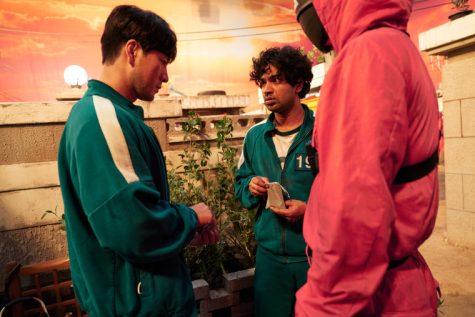
Everyone in this show is human–even the soldiers covered in the bright, yet somehow
ominous uniforms. While their faces are shrouded by a mask, dehumanizing them, their personal stories are also intertwined with the drama, adding to the depiction of the laborious life tied to capitalism. With the exception of a few VIP members, everyone orchestrating the game is stuck in the loop of carrying out the games, mopping up blood and burning bodies. The appeal to the players is that they have a chance to escape this very life the soldiers are trapped in.
Another brilliant aspect of the show that makes it so appealing is that it doesn’t glorify violence. There’s nothing thrilling about watching middle-aged people scraping at sugar or playing marbles. It’s the tension that builds as the players begin to acknowledge that they have such little control over their fates and rely on luck to survive. It’s not the violence that keeps us on the edge of our seats but the thin, obscure line between life and death, rich and poor.
While I won’t say what happened, the ending is just as ambiguous as the characters, carrying the theme that no one is objectively good or evil. When manipulated by capitalism, humans’ innate grasp at survival shows how far one is willing to abandon humanity and run toward self-preservation.
Works Cited
Still Watching Netflix. “The Squid Game Cast React to Their Own Show | Netflix.” Www.youtube.com, 6 Oct. 2021, www.youtube.com/watch?v=xc61U1aFkik. Accessed 30 Oct. 2021.

Class of 2023
Favorite food: Dark chocolate
Favorite school subject: Music
Favorite animal: Monkey
Favorite part of being on The Hat Chat: Writing...

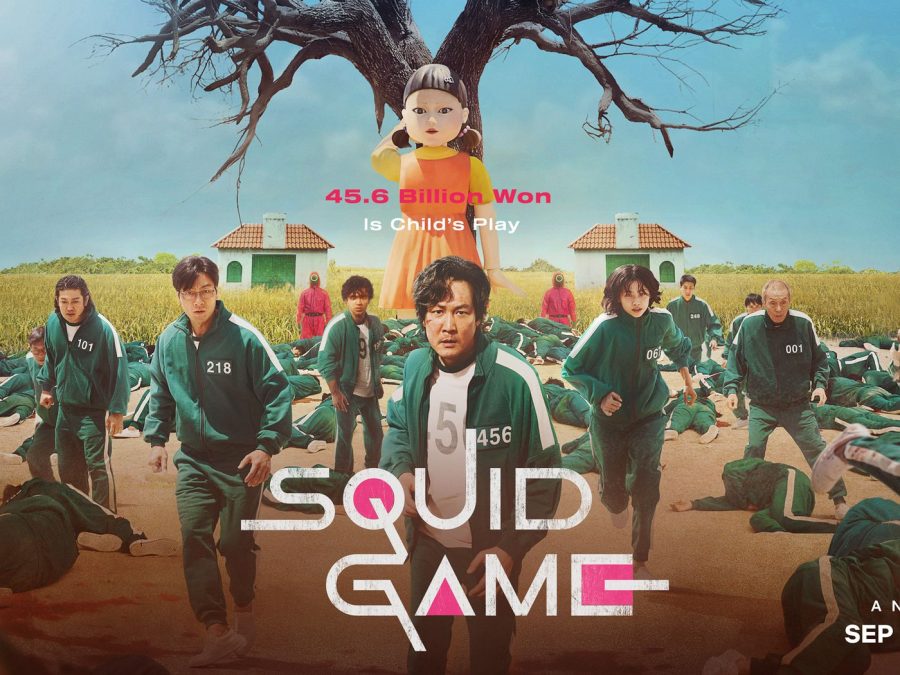
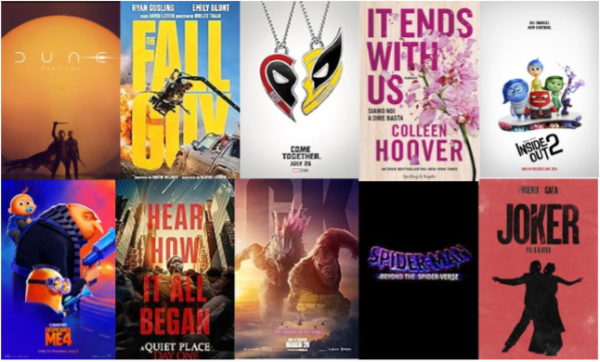


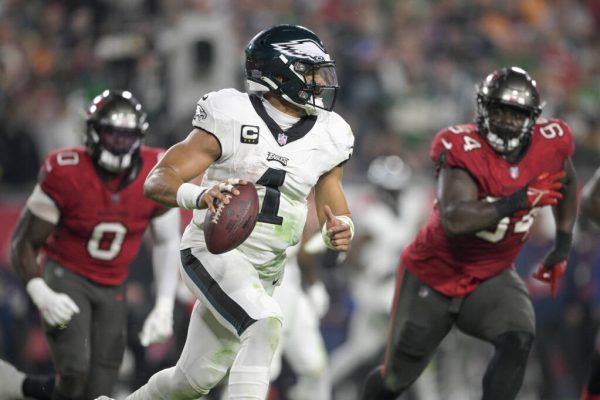

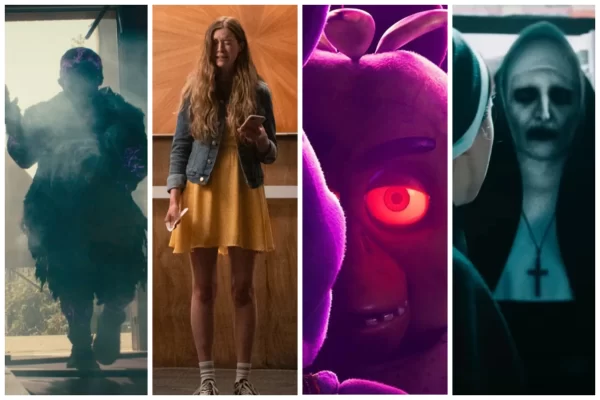
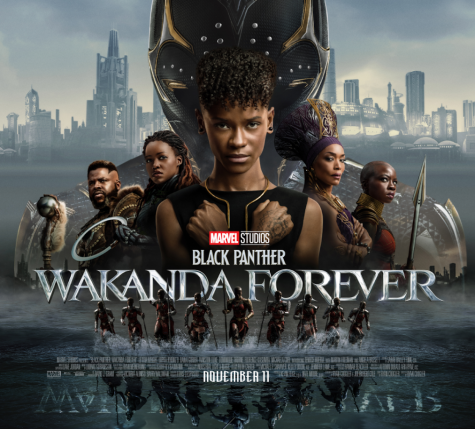

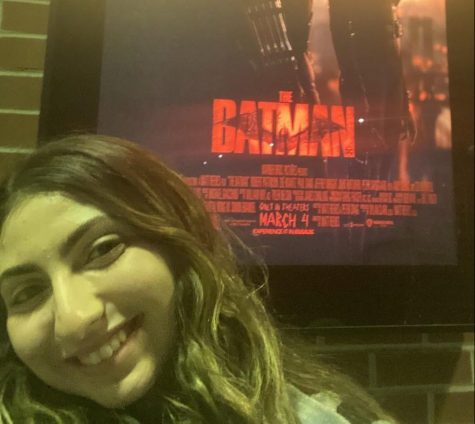
Bob Anderson • Nov 1, 2021 at 11:17 am
I am concerned that you really don’t understand the meaning on capitalism. Here is the definition. “An economic and political system in which a country’s trade and industry are controlled by private (citizens) owners for profit, rather than by the state.” Capitalism is proven to be the best system to raise people out of poverty. If you are willing to work and make good individual choices, the free market will reward you. Capitalism gives people FREEDOM to do what you want with your money. Government controlled economies rewards mediocrity and often times spawns small economic growth for it’s citizens. The world counts on capitalist to invent and expand economies. There is Greed in every political/economic system. You don’t live in a Socialist or Communist country so you don’t have the proper perspective on how good you have it under a capitalist system.
braidy • Nov 5, 2021 at 8:18 am
take a sociology course
Braidy • Nov 5, 2021 at 8:21 am
You should read Outliers by Malcolm Gladwell. it will give you some insight.